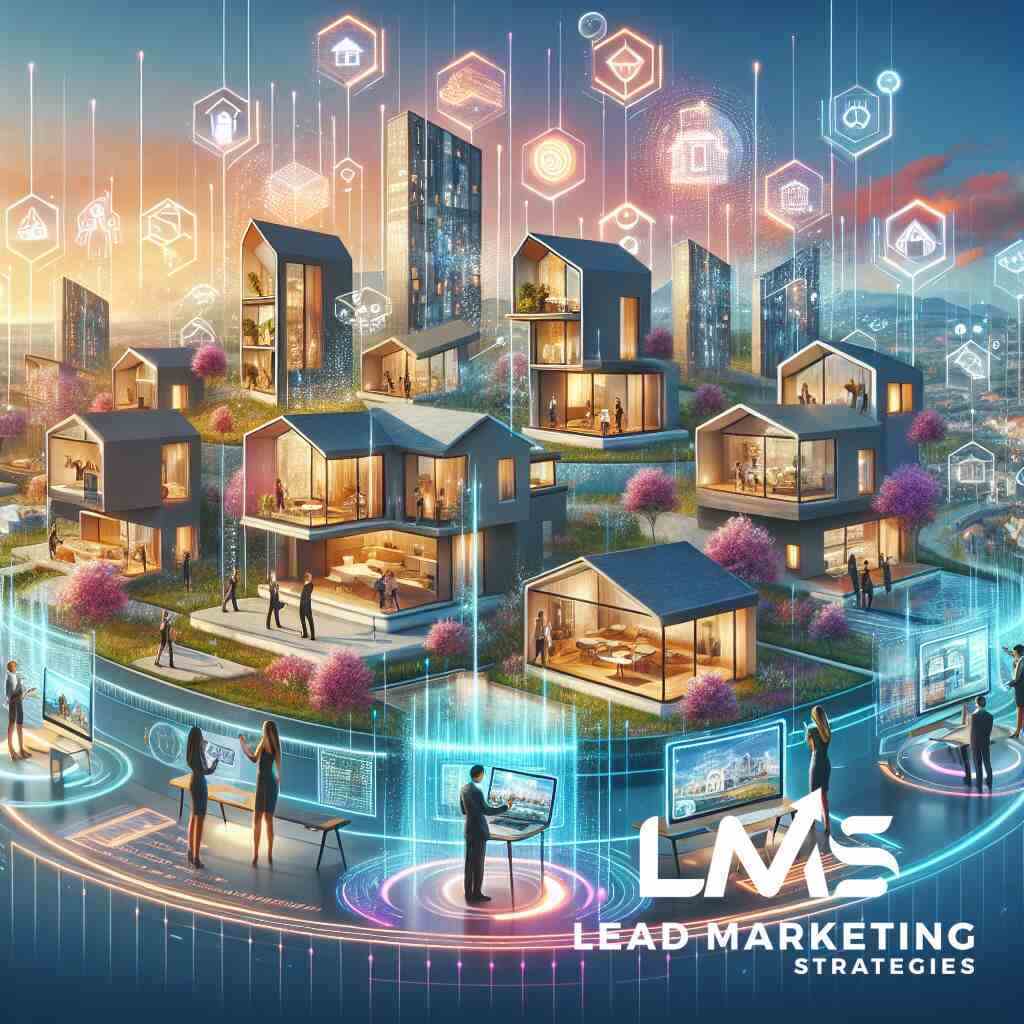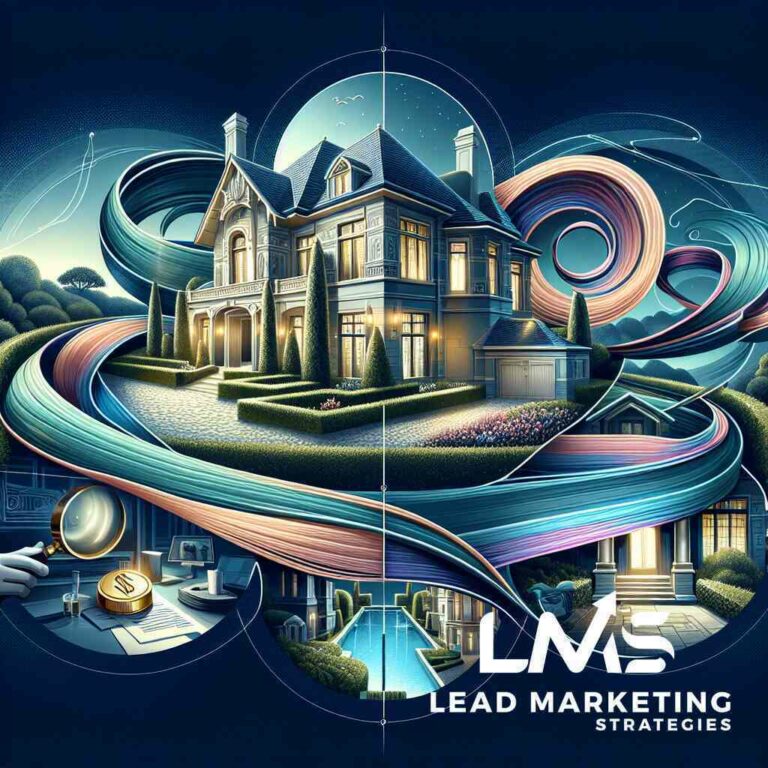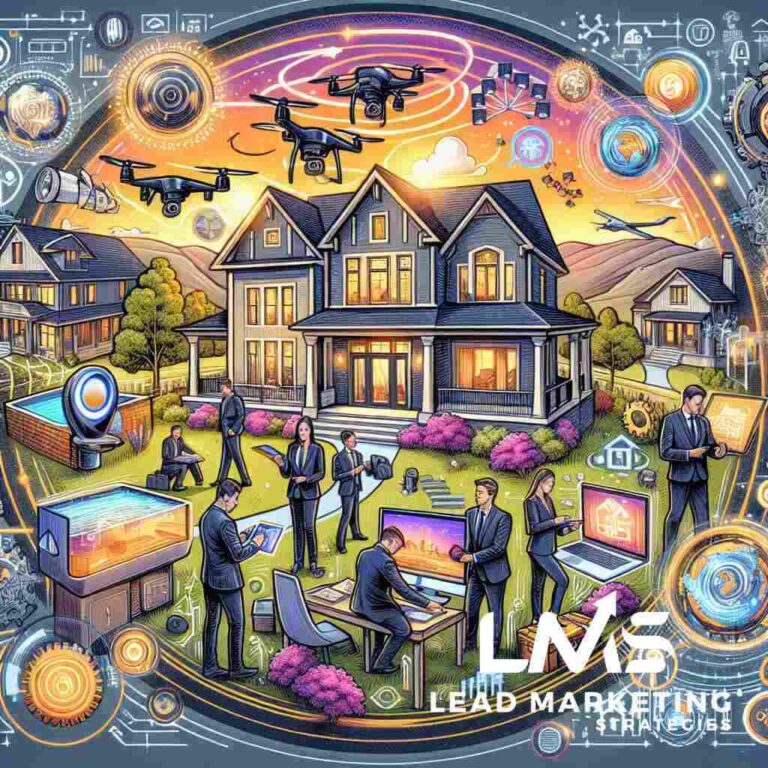Envisioning the Social Media Landscape of Real Estate in 2025
Understanding the Evolution of Real Estate Social Networks
The real estate sector has witnessed a substantial transformation due to the advancements in social media networks. Platforms have evolved from simplistic listing sites to complex networks that allow realtors to build their brand and engage with potential buyers and sellers more effectively. In recent years, the shift towards a digital marketing strategy has resulted in a more interactive and engaging presence for real estate professionals. This evolution is necessary for staying competitive, as platforms like Instagram and TikTok now serve as critical tools for showcasing listings and developing personal brands.
Anticipating Future Platform Trends and Engagement
As we look ahead to 2025, it’s crucial to anticipate upcoming trends and evolve engagement strategies. Emerging platforms are continuously redefining how real estate marketing functions. The next few years will likely see a rise in community-centric platforms, focused on creating interactive and engaging online experiences. This change will require real estate professionals to adopt innovative real estate marketing tactics in 2025 and emphasize real estate social media tactics. Agents and firms must be ready to explore these new platforms to ensure they remain relevant and effectively capture their audience’s attention.
Role of Virtual Reality and Augmented Reality Experiences
Virtual reality (VR) and augmented reality (AR) are set to transform the real estate landscape, offering immersive experiences for prospective homebuyers. These technologies provide virtual property tours, which allow buyers worldwide to view homes without needing a physical presence. This method not only reduces time and cost but also expands market reach. The role of VR and AR cannot be overstated, as they offer a higher level of engagement and an opportunity to visualize properties more vividly than traditional photos or videos. In this evolving digital era, adopting such technology becomes vital for real estate professionals looking to stay competitive.
Predicting Shifts in Social Media Algorithms for Realtors
Social media algorithms continuously evolve, and understanding these shifts is crucial for real estate professionals. As platforms change their algorithms, real estate agents must adapt their strategies to maintain visibility and engagement. Moving forward, the emphasis will likely be on content that encourages longer engagement times, such as videos and live streams. Consequently, real estate professionals must create value-driven content that resonates with their audience. By anticipating these changes, agents can better tailor their strategies to align with platform updates, ensuring their content remains visible and impactful within the industry dynamics.
Harnessing Emerging Technologies for Realtor Digital Networking
Leveraging Artificial Intelligence for Personalized Marketing
The integration of Artificial Intelligence (AI) is redefining real estate marketing. Personalization is at the forefront, allowing realtors to tailor content uniquely to each client. By analyzing user behavior, AI offers insights that enable personalized recommendations and property suggestions. This deep understanding of prospective clients’ needs not only enhances engagement but also increases conversion rates. As AI technologies continue to evolve, their role in crafting AI innovations in real estate marketing will become pivotal, offering real estate professionals an edge in delivering superior customer experiences.
Augmented Reality Home Tours: The Next Frontier
Augmented Reality (AR) is transforming property tours by enabling potential buyers to experience homes in a way that was previously unimaginable. This technology overlays virtual elements onto the real world, allowing users to visualize changes and enhancements to properties in real-time. For instance, buyers can see how a room might look with different furniture or decor, making it a powerful tool in decision-making. As the demand for augmented reality tours in real estate grows, real estate professionals who adopt AR will find themselves ahead in the competitive landscape, offering immersive and engaging buyer experiences that can close deals faster.
Innovations in Real Estate Influencer Marketing
Influencer marketing has found its place in the real estate sector, opening doors to new audiences through trusted personalities. Realtors who collaborate with influencers can leverage their extensive reach to showcase properties to a broader, engaged audience. By forming strategic partnerships with influencers that align with their brand, realtors can build trust and authenticity around their listings. As innovations in real estate influencer marketing evolve, this strategy will become integral for firms and agents aiming to enhance their market presence and connect with tech-savvy prospects.
Automation Tools for Real Estate Social Media Efficiency
Automation tools are revolutionizing how real estate professionals manage their social media platforms. Streamlining social media tasks allows agents to save time and maintain a consistent online presence without manual intervention. By utilizing these tools, agents can schedule posts, track engagement metrics, and respond to inquiries promptly, ensuring no opportunity is lost. As these tools become more sophisticated, their capacity to enable real estate social media automation will only expand, helping agents to focus on high-impact activities while maintaining a robust and engaging digital presence.
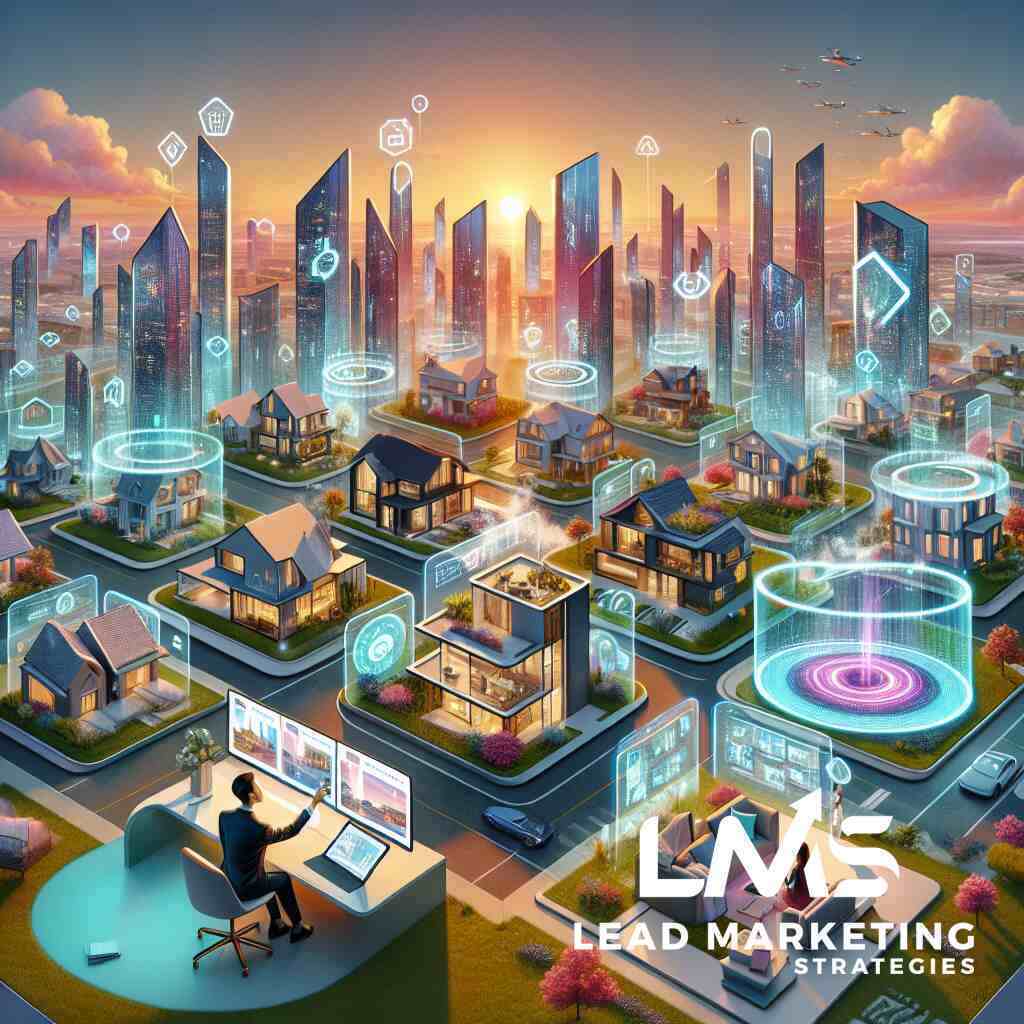
Crafting Interactive and Engaging Real Estate Campaigns
Visual Storytelling Techniques for Property Listings
In 2025, visual storytelling stands at the forefront of engaging real estate campaigns. Realtors are harnessing high-quality imagery, compelling videos, and virtual tours to bring properties to life. The power of visual storytelling cannot be overstated; it transforms static property listings into immersive experiences. By integrating these techniques, agents can distinguish their listings amidst a crowded marketplace, ensuring they captivate the interest of potential buyers. Professionals adept at visual storytelling elevate their real estate marketing services by offering dynamic and memorable glimpses into properties.
Implementing these strategies requires a keen understanding of the target demographic. Agents can forge emotional connections that drive engagement and compel action by tailoring content to reflect potential buyers’ lifestyles. Emphasizing elements like neighborhood amenities and architectural highlights further enhances the narrative. The shift towards visually-driven content enables realtors to showcase not just a home, but the potential for a new lifestyle.
Utilizing Data Analytics for Audience Engagement
Harnessing data analytics is essential for tailoring campaigns that resonate with specific audiences. In the digital age, insights derived from data drive decision-making processes and refine marketing strategies. Real estate professionals can use analytics to pinpoint the interests and behaviors of potential buyers, enhancing audience engagement. Through this approach, agents create more personalized and impactful property marketing.
Data analytics insights allow realtors to optimize content delivery, ensuring that the right message reaches the right audience at the right time. Predictive analytics plays a pivotal role in estimating buyer intent and trends, empowering agents to act proactively. By integrating advanced data solutions, realtors not only enhance their traditional offerings but also elevate their overall service delivery to clients, thereby improving customer satisfaction.
Building Community-Centric Realtor Profiles
Establishing community-centric profiles enables realtors to build trust and authority within their markets. Agents can differentiate themselves in the industry by focusing on local engagement and neighborhood insights. These profiles are vital for realtors aiming to foster genuine connections with potential buyers, offering personalized interactions and invaluable neighborhood knowledge.
Realtors who adopt this strategy can utilize platforms that encourage community participation. This includes running local events, sharing community news, and highlighting local businesses, effectively positioning themselves as neighborhood experts. Authentic, community-driven engagements create lasting impressions, making it easier for potential clients to associate the realtor with the area.
Integrating Omni-Channel Strategies for Brand Unification
Real estate branding is undergoing a significant transformation by integrating omni-channel strategies. In contrast to traditional siloed approaches, omni-channel marketing ensures a seamless user experience across all platforms. By unifying their brand message, real estate agents can ensure consistent and engaging interactions regardless of the channel.
This approach requires a strategic blend of various media: social platforms, email marketing, virtual tours, and more. An effectively integrated strategy amplifies brand recognition and solidifies customer loyalty. Realtors who master omni-channel delivery report higher engagement and conversion rates, as clients appreciate consistent and coherent brand messaging. With tailored content distributed across diverse channels, agents are better equipped to capture and maintain attention, succeeding in dynamic and competitive real estate landscapes.
By implementing these essential strategies, real estate professionals are better positioned to navigate the ever-evolving digital sphere while advocating for unique, personalized buying experiences.
Strategies for Sustainable and Human-Centric Real Estate Branding
Localized and Sustainable Social Media Practices
Localized real estate marketing efforts are pivotal as they resonate deeply with the community’s needs and preferences. Realtors can foster loyalty and authenticity in their interactions with prospects by championing sustainable social media practices. At Real Estate Marketing Strategies, we emphasize crafting campaigns infused with local flavor, ensuring that marketing messages reach and also engage the right audience. This approach helps build trust and strengthen the realtor’s reputation within the community. Sustainable practices such as eco-friendly open house events and community green initiatives can also be leveraged as powerful social media content. Fully integrating these localized strategies fortifies a realtor’s position, driving engagement and enduring relationships within the communities they serve.
Future-Proofing Real Estate Marketing Approaches
Realtors must embrace resilient approaches to the rapid technological changes to thrive in the digital age. Future-proofing involves staying ahead of market trends and incorporating technologies that enhance client experiences. Real estate agents can adapt to technological shifts while maintaining a personalized touch with clients by exploring real estate marketing in the digital era. Integrating AI-driven insights and automated tools can augment traditional methods, enhancing effectiveness. By doing so, real estate professionals are better equipped to meet the evolving demands of tech-savvy buyers and sellers. This strategic adaptability ensures that marketing efforts remain relevant and efficient, safeguarding realtors against the unpredictable tides of digital transformation.
Embracing Human-Centric Digital Strategies
Maintaining a human touch in real estate marketing is vital in a tech-dominated world. Human-centric strategies focus on understanding and addressing clients’ unique needs, humanizing the digital interaction. Real estate professionals can deliver client-centric experiences that foster trust and satisfaction by leveraging data analytics and personalized content. This approach not only enhances engagement but also aids in client retention, illustrating the personal care and attention to detail that clients desire. Embracing these strategies enables realtors to balance technology and genuine human interaction, ensuring that every digital touchpoint reinforces client relationships and brand loyalty.
Brand Development with Data-Driven Insights
Data-driven insights are the cornerstone of effective brand development in the real estate industry. Realtors can identify trends, assess market dynamics, and gain a deeper understanding of client preferences by leveraging analytics. These insights inform the creation of targeted marketing strategies, allowing for precision in reaching desired demographics. Realtors can enhance their brand’s narrative by utilizing data to craft compelling stories that resonate with potential buyers. The integration of these analytics into brand strategies enables a more refined marketing approach, effectively elevating the realtor’s visibility and influence. This analytical prowess not only strengthens brand positioning but also ensures that marketing efforts are aligned with the nuanced demands of the marketplace.
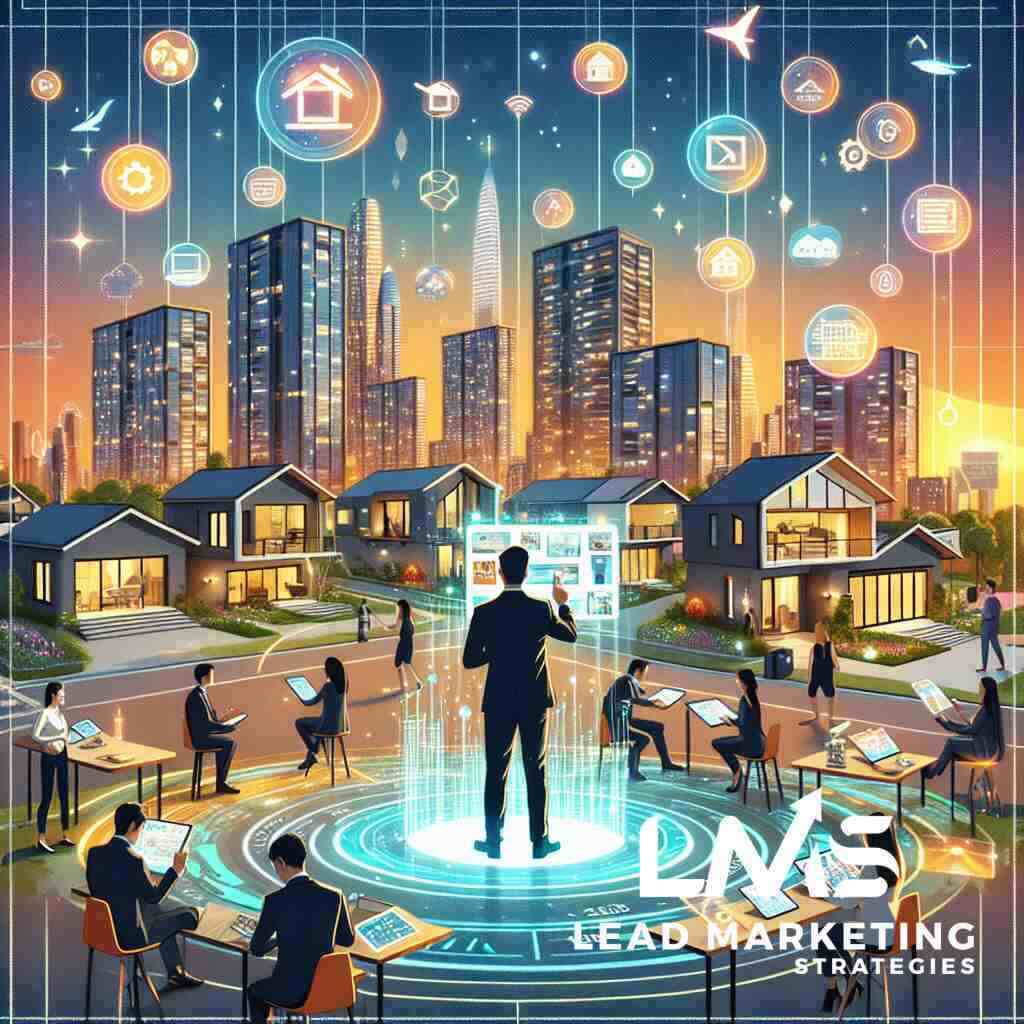
Concluding Thoughts: Pioneering the New Era of Real Estate Social Media
Synthesizing Innovations for Realtor Success
The future of real estate social media foresees a dynamic integration of cutting-edge technologies and personalized marketing strategies. A key driver of this success lies in harnessing innovations to create impactful experiences for buyers and sellers. Real estate professionals must embrace these innovations in real estate influence to stay ahead of the curve. By synthesizing AI-driven insights with augmented and virtual reality capabilities, realtors can offer immersive and tailored property experiences. This forward-thinking approach enhances visibility and strengthens client connections, ensuring long-term success in a competitive marketplace.
Success in this evolving landscape is about more than just employing advanced tools; it’s about crafting a holistic approach that marries innovation with a deep understanding of client needs. Real estate professionals can leverage various technologies to streamline operations, from AI-enhanced lead generation to AR home tours. By honing strategies to align with consumer expectations and digital trends, agents and firms can navigate the intricate social media terrain with agility and foresight.
Preparing for a Digitally Dominant Real Estate Future
As the digital realm continues to overshadow traditional methodologies, the future of real estate marketing is firmly anchored in online platforms. Professionals must prepare for this digitally dominant landscape by embracing comprehensive digital networking for realtors. Social media is becoming the linchpin of real estate interactions, offering platforms where realtors can engage in real-time with prospects worldwide.
Investing in robust digital infrastructures and adopting omni-channel strategies ensures seamless brand communication across various mediums. Realtors must also align their platforms to support cutting-edge marketing techniques, such as interactive content and data analytics. Preparation involves a commitment to continuous learning and adaptation to new tools, which allows agents to remain relevant and effective in capturing the attention of digital-first consumers.
Fostering Long-Term Client Relationships Through Social Platforms
In the age of digital communication, social platforms play a pivotal role in fostering enduring client relationships. Real estate professionals can leverage these channels to maintain ongoing dialogues with potential and existing clients, providing a blend of value, insight, and transparency. Agents build trust and loyalty by cultivating responsive and engaging social media presences, essential components for long-term success in real estate transactions.
Social platforms also provide an unprecedented opportunity to tap into community-centric marketing, where local engagement lays the foundation for stronger connections. Realtors can establish themselves as trusted neighborhood experts through targeted content and consistent interaction, enhancing their credibility and approachability. Over time, this relational focus on local real estate marketing in California enables real estate professionals to craft a distinguished brand presence that resonates with clients on a personal level.
Pioneering the new real estate social media era demands innovation, foresight, and a commitment to cultivating meaningful experiences. Realtors can ensure their sustained success and influence in the market by staying current with evolving platforms and understanding emerging trends. As the industry moves forward, these strategies will be central in creating a future where digital interactions drive exceptional client outcomes.
Frequently Asked Questions
Question: How does Real Estate Marketing Strategies suggest leveraging AI in real estate marketing to enhance client engagement by 2025?
Answer: Real Estate Marketing Strategies recognizes the transformative power of AI in real estate marketing. By utilizing AI technologies, realtors can personalize engagement, tailoring content to individual client preferences. This approach enhances the buyer’s journey, increasing engagement and conversion rates. Our robust suite of tools enables agents to analyze user behavior, providing personalized property recommendations and insights that align with client needs. This builds stronger relationships and amplifies real estate social media automation, making client interactions more efficient and effective.
Question: What role do you see virtual and augmented reality playing in real estate marketing strategies over the next few years?
Answer: Virtual and augmented reality are poised to revolutionize real estate marketing strategies. At Real Estate Marketing Strategies, we see these technologies as key components in delivering immersive property experiences. VR and AR enable potential buyers to engage in virtual property showings, offering a comprehensive view of properties without physical constraints. This broadens market reach and enhances client satisfaction by providing detailed, interactive property visuals. Utilizing these cutting-edge technologies elevates your brand’s impact, creating more dynamic real estate branding opportunities.
Question: How can real estate agents integrate emerging social media platforms into their marketing for optimal audience engagement by 2025?
Answer: Emerging social media platforms present unique opportunities for real estate agents to boost audience engagement. With Real Estate Marketing Strategies, agents are guided on employing these platforms effectively through omni-channel marketing real estate approaches. By adopting community-centric strategies, realtors can engage with audiences meaningfully, utilizing interactive content to capture and maintain attention. Using data-driven real estate marketing techniques allows agents to fine-tune their approach, ensuring that engaging, personalized content reaches every corner of their target demographic, thereby maximizing engagement and conversion.
Question: In The Future of Real Estate Social Media in 2025, what innovative branding methods does Real Estate Marketing Strategies recommend for enhanced market presence?
Answer: In The Future of Real Estate Social Media in 2025, Real Estate Marketing Strategies advocates for innovative real estate branding that combines data-driven insights with human-centric strategies. Analyzing audience data enables realtors to refine their brand messaging and optimize social media campaigns to resonate more deeply with their audiences. Our focus on sustainable real estate branding and localized marketing ensures that agents not only enhance their market presence but also build enduring client relationships. Integrating these strategies positions agents as trusted authorities in their respective markets.
Question: How do real estate marketing strategies plan to future-proof real estate strategies and adapt them to evolving social media algorithms?
Answer: Real Estate Marketing Strategies is dedicated to future-proofing real estate strategies by staying ahead of changing social media algorithms. The emphasis is on creating value-driven content that prioritizes engagement, such as video and live streaming. By leveraging real estate social media analytics, we help agents optimize their content for visibility and impact. Our approach ensures continuity in engagement, enabling realtors to navigate algorithm shifts effectively and maintain their presence across platforms. Real estate professionals can thrive in an ever-changing digital landscape by adopting these adaptive strategies.
